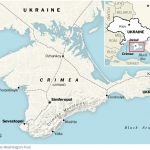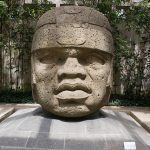The Late Holocene history of the ancient Maya world provides a microcosm of the Early Anthropocene. Much of the region today is tropical forest or recently deforested, but from 3,000 to 400 years ago Maya cities, farms, roads, reservoirs, and fields altered most of this region. Although a literate society, the written record provides little for environmental history; thus we can turn to climate and soil records. Climate played some role in periods of instability and stability and perhaps the Maya themselves caused some climate change. Indeed, ancient Maya climate change provides our clearest comparison with the modern Anthropocene because the ancient Maya also experienced sea level rise and climate drying like the contemporary world. But we are still—and may always be— uncertain about attribution of climate change to Maya history because of the imperfections in proxy data and the many unknowns about Maya adaptation and unrelated cultural changes. Soil tells us much more than climate about the Maya. The soil record from geoscience and archaeology provides direct evidence of human responses or lack of responses at times that correlate with other changes. Some responses of Maya Civilization that show up in soil studies were positive long-term impacts on the built environment, like wetland field systems, terraces, and other practices that enriched soils and ecosystems. The soil also indicates negative impacts like erosion and eutrophication, both playing out again today. But the Maya Classical period—with its peak human population and land use intensity— experienced less soil erosion, perhaps due to soil conservation. All of this study is still in its infancy because of the proliferation of lidar imagery that is providing a much better footprint of the impacts and infrastructure of the ancient Maya on their tropical forest.
Dr. Timothy Beach, holds a C.B. Smith, Sr. Centennial Chair and directs the Beach-Butzer Soils and Geoarchaeology Lab in Geography at the University of Texas at Austin. For twenty-one years, he taught at Georgetown University, where he held the Cinco Hermanos Chair and was Professor of Geography and Geoscience and Director of the Science, Technology, and International Affairs and Environmental Studies Programs. He has conducted field research on soils, geomorphology, paleoecology, wetlands, and geoarchaeology in the Corn Belt of the United States, the original corn belt of Mexico, Belize, Guatemala, the Mediterranean in Syria, Turkey, and Italy, and some other places. His work earned funding from the National Science Foundation, the National Geographic Society, USAID, The University of Texas at Austin, and Georgetown University. His field studies have been the bases for more than one hundred peer-reviewed articles and chapters and hundreds of scientific presentations around the world, including at the Vatican in 2017. Most of his publications were on long-term environmental change, soils and geomorphology, paleoclimate, and geoarchaeology in the Maya world. He was elected as a Fellow of the American Association for the Advancement of Science and awarded Guggenheim and Dumbarton Oaks Fellowships, the G.K. Gilbert Award in Geomorphology, Georgetown University’s Distinguished Research Award in 2010, Georgetown’s School of Foreign Service’s Faculty of the Year for Teaching Excellence in 2014, the Carl O Sauer Award in 2017, and the CSU Chico Alumni of the Year in 2018.
The views and opinions expressed in this article or video are those of the individual author(s) or presenter(s) and do not necessarily reflect the policy or views of the editors at Not Even Past, the UT Department of History, the University of Texas at Austin, or the UT System Board of Regents. Not Even Past is an online public history magazine rather than a peer-reviewed academic journal. While we make efforts to ensure that factual information in articles was obtained from reliable sources, Not Even Past is not responsible for any errors or omissions.



